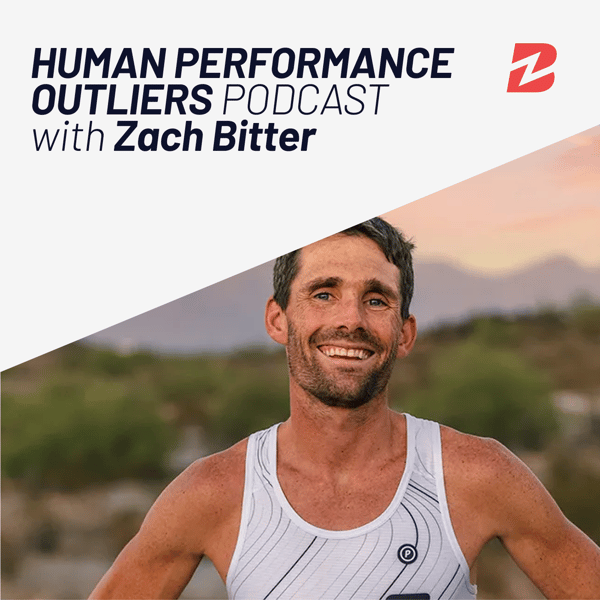Episode 369: Speed Work Distribution & Double Threshold Sessions
Human Performance Outliers Podcast with Zach Bitter
Zach Bitter
4.7 • 615 Ratings
🗓️ 10 October 2023
⏱️ 34 minutes
🧾️ Download transcript
Summary
For this episode I outline how I like to position speed work in a training build up. I also touch on the double threshold training model, and if you should consider incorporating it into your endurance training.
LMNT: drinkLMNT.com/HPO
deltaG: deltagketones.com - IG: @deltag.ketones
HPO Sponsors: zachbitter.com/hposponsors
Support HPO: zachbitter.com/hpo
Zach’s Coaching: zachbitter.com/coaching
Zach’s Newsletter: substack.com/@zachbitter
Podcast Episodes Mentioned:
Episode 337: The Long Run Considering the Variables
Episode 344: Endurance Training Simplified
Episode 346: Short Intervals Simplified
Episode 348: Long Intervals Simplified
Episode 352: Proper Aid Station Navigation
Episode 356: Easy Run - Simplified
Episode 363: Mental Training For Endurance
Episode 366: Race Course Specific Training
Zach: zachbitter.com IG: @zachbitter Tw: @zbitter Substack: zachbitter.substack.com FB: @zbitterendurance Strava: Zach Bitter TikTok: @zachbitter Threads: @zachbitter
Transcript
Click on a timestamp to play from that location
| 0:00.0 | Thanks for tuning into this episode of the Human Performance Outliers podcast with Zach Bitter. |
| 0:09.5 | All right, everyone, welcome back to another episode of the Human Performance Outliers podcast. |
| 0:13.4 | I'm your host, Zach Bitter, and today I have a solo episode for you. |
| 0:18.3 | Today's solo episode is on a topic about how to distribute the intensity |
| 0:24.1 | training that you do in your endurance plan over the course of a training plan. But most |
| 0:31.7 | specifically, I want to get into a little bit more about maybe how not to do it because I see a lot of interesting |
| 0:40.0 | stuff online when it comes to speed work and things like that. And as you would imagine, |
| 0:45.5 | the things that end up getting a lot of publicity and a lot of interest and intrigue are |
| 0:53.2 | things that are either new or things that are |
| 0:56.9 | perceivably new and things that seem to be working for some of the more recognizable |
| 1:02.2 | figures in the sport. So elite athletes, Olympians, and things like that. When in reality, |
| 1:07.6 | you have to think about also how they got to that point and whether or not you're skipping |
| 1:14.5 | steps to try to replicate something when it comes to planning your speed work because like |
| 1:20.2 | pretty much everything in endurance sport you don't do yourself any favors certainly no long-term |
| 1:25.1 | favors by skipping steps or by finding yourself in a position |
| 1:29.4 | where you are taking a shortcut that may produce some short-term results, but ultimately |
| 1:35.6 | hold you back from finding where your true potential is. So I actually specifically got |
| 1:41.5 | interested in this topic because of double threshold training. |
| 1:44.4 | That seems to be the thing that's gotten a lot of buzz right now or a lot of interest from people in the running world in terms of whether they should or shouldn't do these double threshold training sessions. |
| 1:55.1 | And if that's going to be the thing that brings them their next best race result. |
| 1:59.4 | And part of that's just because, you know, you have individuals like the Engelbrickson's, |
| 2:03.7 | who specifically Yaacob, who is one of the best endurance athletes in the world right now, |
... |
Please login to see the full transcript.
Disclaimer: The podcast and artwork embedded on this page are from Zach Bitter, and are the property of its owner and not affiliated with or endorsed by Tapesearch.
Generated transcripts are the property of Zach Bitter and are distributed freely under the Fair Use doctrine. Transcripts generated by Tapesearch are not guaranteed to be accurate.
Copyright © Tapesearch 2025.

